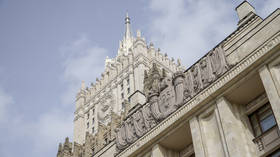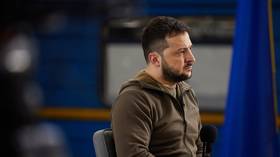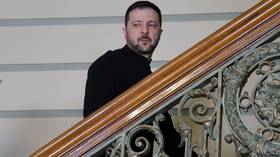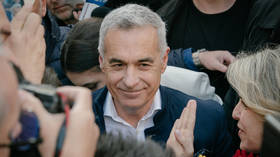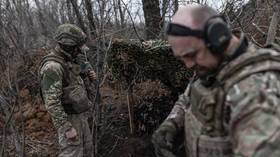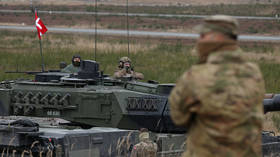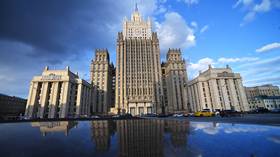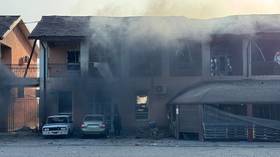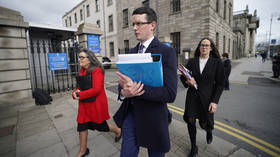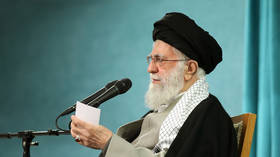Moscow blames West for stalled Ukraine talks
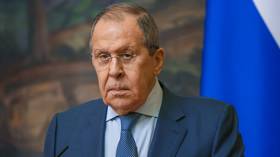
There is a belief in Moscow that Washington, London, and other Western capitals – not Kiev – are the real decision-makers when it comes to Ukraine, Russian Foreign Minister Sergey Lavrov explained on Monday. He said that, on advice from the US and UK, Kiev’s negotiators backtracked on the tentative understanding reached last month in Istanbul.
Ukrainian and Russian negotiators met face-to-face in Turkey at the end of March. Russia then took Ukraine’s outline, put it together in a “contractual” format and sent it to Kiev, only to get back “radically different” ideas in what was a “huge step back,” Lavrov said in the interview with ‘The Great Game,’ a political talk show on Russia’s Channel One.
“We know for sure that neither the US nor the UK – which is trying in every possible way to compensate for its current lonely status after leaving the EU – advised [Ukrainian President Volodymyr] Zelensky to speed up the negotiations, but to harden his position each time,” Lavrov said. The backtracking after Istanbul, he added, “was taken on the advice of our American or British colleagues. Maybe the Poles and the Balts played some role here.”
Meanwhile, Western leaders – such as UK PM Boris Johnson and EU foreign policy chief Josep Borrell – have made statements to the effect that Russia “must be defeated” and that the conflict needs to be resolved “on the field of battle,” while sending weapons to Kiev, Lavrov noted.
“These weapons will be a legitimate target for the Russian Armed Forces,” the foreign minister said. “Warehouses, including in the west of Ukraine, have become such a target more than once. How else? NATO is essentially going to war with Russia through a proxy and arming that proxy. War means war.”
While “casting spells” against a Third World War, the West is fueling the conflict with weapons and hoping to have Ukraine “fight Russia to the last man” in order to bleed Moscow, Lavrov said.
“You know, goodwill is not unlimited,” he added. “If it is not reciprocated, then this does not contribute to the negotiation process. As before, many of us are convinced – as I have already mentioned – that the real position of Ukraine is determined in Washington, London and other Western capitals,” he said, noting that some political scientists have said that talks should be held with NATO, and not Zelensky.
However, Lavrov also pointed out that Russia has not had much luck talking to NATO directly. When Moscow presented its security proposals to the US and NATO in December 2021, they were politely heard and then ignored.
“Rather impolitely, they made it clear that what was needed for our security was not up to us to decide,” Lavrov said.
The objectives of the ‘special military operation’ announced by Russian President Vladimir Putin on February 24 have not changed, Lavrov said – the destruction of military infrastructure in Ukraine that threatens Russia, with “the strictest measures in order to minimize any damage to the civilian population.”
Lavrov also offered a prediction how the conflict will end. “As in any situation where armed forces are used, everything will end with a treaty,” he said. “But its parameters will be determined by the stage of hostilities at which this treaty becomes a reality.”
Russia attacked the neighboring state in late February, following Ukraine’s failure to implement the terms of the Minsk agreements, first signed in 2014, and Moscow’s eventual recognition of the Donbass republics of Donetsk and Lugansk. The German and French brokered Minsk Protocol was designed to give the breakaway regions special status within the Ukrainian state.
The Kremlin has since demanded that Ukraine officially declare itself a neutral country that will never join the US-led NATO military bloc. Kiev insists the Russian offensive was completely unprovoked and has denied claims it was planning to retake the two republics by force.
